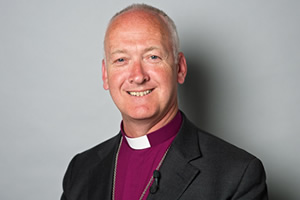With a restructure in the offing, what is the future for Religion at the BBC?
It was announced last week that the BBC is to shake up its commissioning briefs (so to speak).
According to reports, four of the BBC’s most senior commissioners will have their roles closed as part of a major overhaul of the factual division. The restructuring, which is being overseen by factual commissioning controller Emma Swain, is aimed at saving money and re-focusing the division ahead of the proposed closure of BBC3.
Basically, three-and-a-half head of commissioning roles will be removed and another created. This will result in the department having six commissioning heads, compared to eight-and-a-half currently.
The bit that interests me particularly is where this puts religion in the new scheme of things. One of the posts to go is that of Aaqil Ahmed, who currently combines being head of Religion & Ethics with being commissioning editor television.
The proposed three newly created head of commissioning roles will cover:
- Head of science, business, history and religion (specialist factual)
- Head of documentaries, current affairs and BBC3
- Head of specialist features and natural history
There will be consequences for other people involved in commissioning in the factual division.
This might all make perfect sense and be a rational and productive structural change within the BBC. But, in the absence of more detail, it also raises important questions:
- Who will take overall responsibility in the BBC for the range, quantity and quality of the religious coverage? Or will this be left as a sort of “fill in” content?
- How much, and what sort of, religious programming does the BBC expect of each of its tv networks?
- Why is there no BBC news religion editor to complement the science, economics, business, political, financial, arts and sports editors?
This is not about special pleading by religious interest groups. At a time when it is impossible to understand the modern world – it’s politics, economics, military and humanitarian events – without understanding religion, why is religion not being prioritised as needing expert interpretation in the public and broadcast sphere? You don’t have to have a religious bone in your body to see the need for this sort of exploration and interpretation in the media. Whether personally religious or not, religion cannot be avoided by any serious observer as a serious factor in shaping – for good or ill – the actions and motivations of people and communities.
So, where will religion sit in the company of science, business and history? And who will be well-informed enough in all four of these areas to give adequate priority to each?
My questions arise from the limited information I have read. They should not be interpreted as suspicious or negative. But, the answers to these key questions will be interesting.
More detail of the BBC’s restructure can be found here: http://www.bbc.co.uk/ariel/30953191





I think this is a very worrying development. There is already a move towards confrontation of an unproductive kind in some religious broadcasting and not enough time given to in depth exploration.